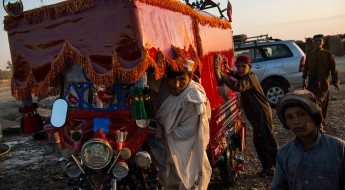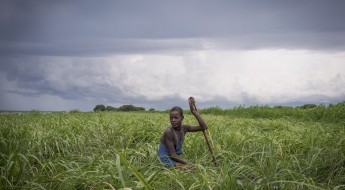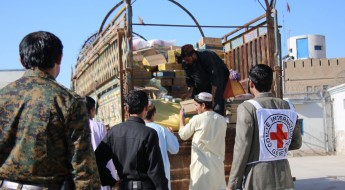Full of courage and grit, Afghan wheelchair basketballers go for the goal
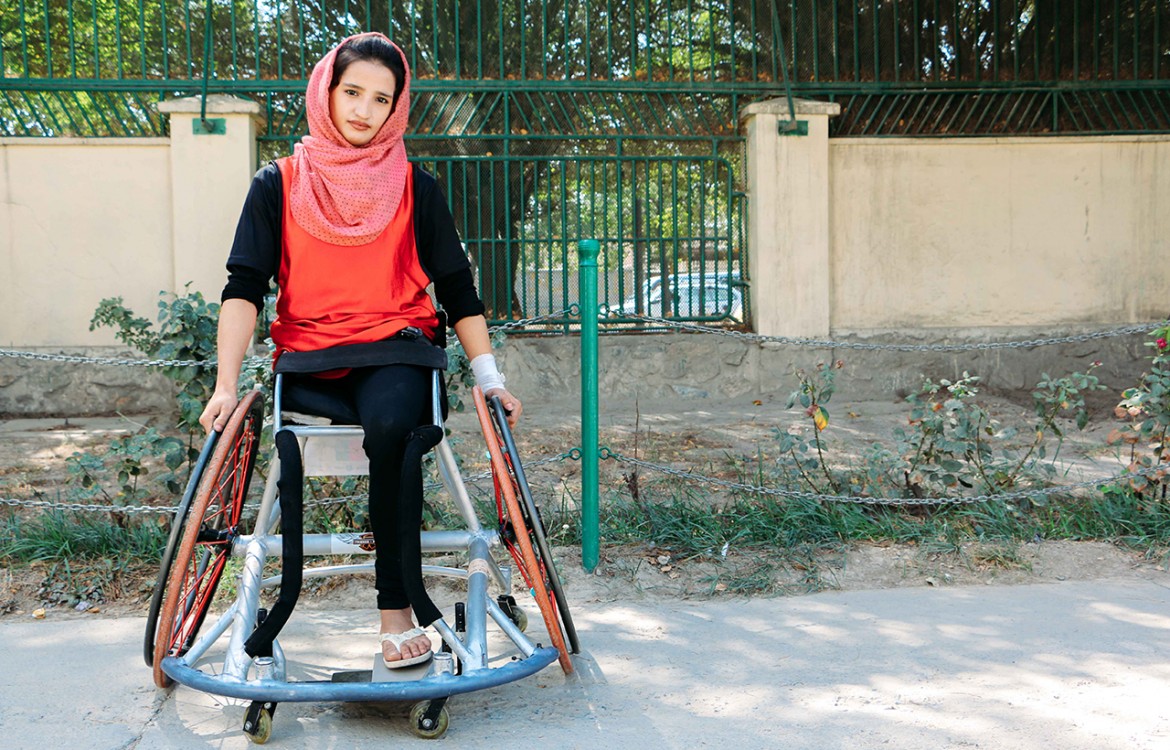 Somaya Noori, 19Thirteen years ago, Somaya was on her way to school when she stepped on a landmine and lost her right leg. “I want to raise awareness about the programme so that others don’t become a victim of war.” Last year, Somaya was awarded the “Best Player” title at the Bali Cup in Indonesia.CC BY-NC-ND / ICRC / Roya Musawi
Somaya Noori, 19Thirteen years ago, Somaya was on her way to school when she stepped on a landmine and lost her right leg. “I want to raise awareness about the programme so that others don’t become a victim of war.” Last year, Somaya was awarded the “Best Player” title at the Bali Cup in Indonesia.CC BY-NC-ND / ICRC / Roya Musawi Farzana Mohamadi, 26Decades of conflict has left the people of Afghanistan with little access to even basic health care. Farzana’s family could not get her vaccinated against polio, because of which she was left paralyzed at the age of two.CC BY-NC-ND / ICRC / Roya Musawi
Farzana Mohamadi, 26Decades of conflict has left the people of Afghanistan with little access to even basic health care. Farzana’s family could not get her vaccinated against polio, because of which she was left paralyzed at the age of two.CC BY-NC-ND / ICRC / Roya Musawi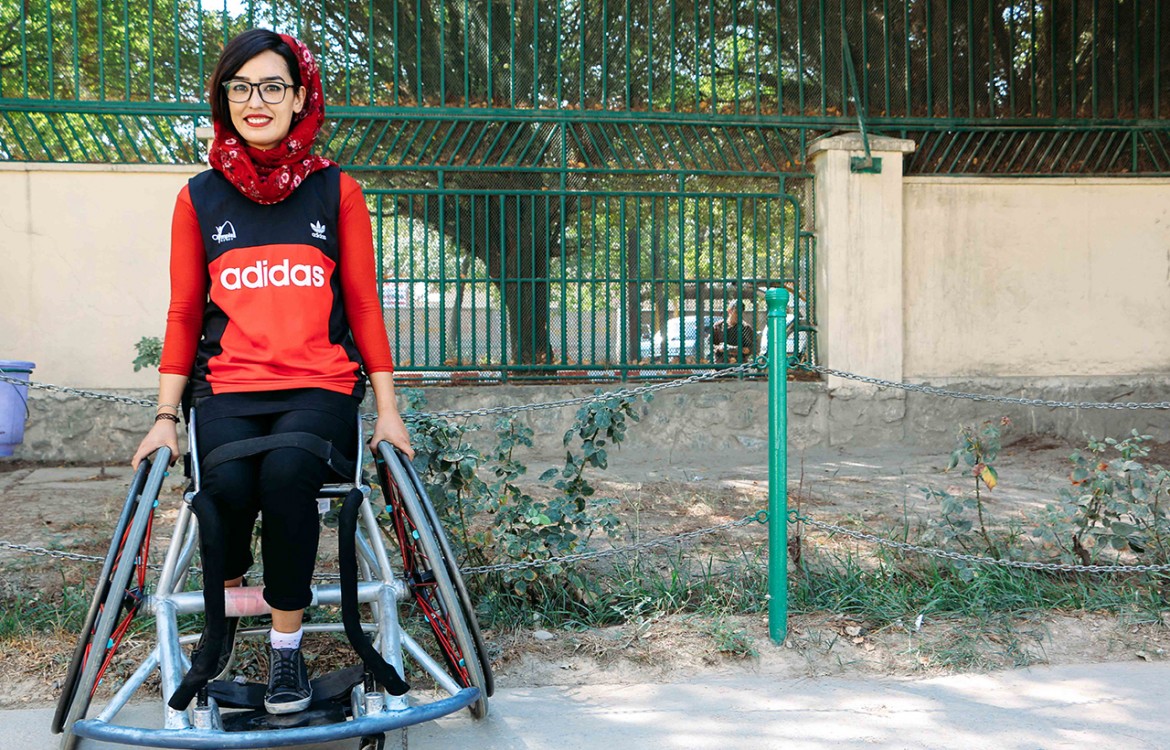 Nilofar Bayat, 25Nilofar is the captain of the team and works for the ICRC at our physical rehabilitation centre in Kabul. She wants the world to see the other side of Afghanistan – one that is free of war and violence.CC BY-NC-ND / ICRC / Roya Musawi
Nilofar Bayat, 25Nilofar is the captain of the team and works for the ICRC at our physical rehabilitation centre in Kabul. She wants the world to see the other side of Afghanistan – one that is free of war and violence.CC BY-NC-ND / ICRC / Roya Musawi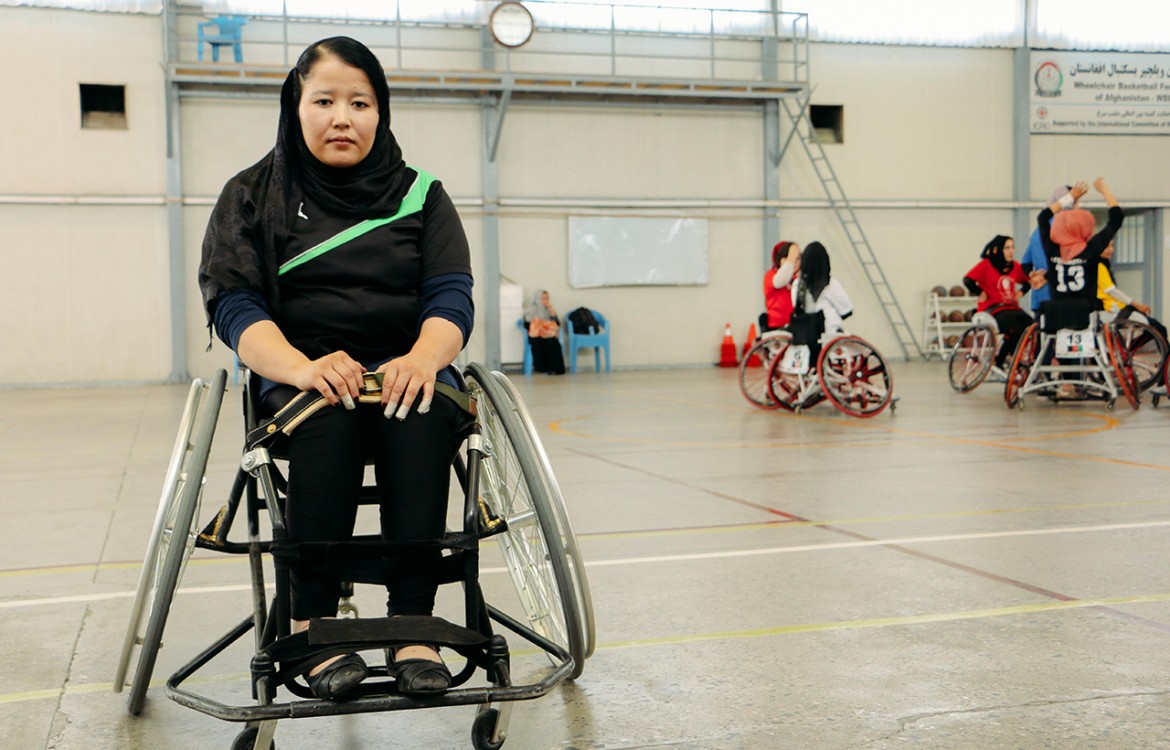 Saleha Haidare, 24This will be Saleha’s first-ever competitive event abroad. Encouraged by her family’s support, this young sportsperson is determined to succeed. “I don’t care about what people think… I am hopeful about my future.”CC BY-NC-ND / ICRC / Roya Musawi
Saleha Haidare, 24This will be Saleha’s first-ever competitive event abroad. Encouraged by her family’s support, this young sportsperson is determined to succeed. “I don’t care about what people think… I am hopeful about my future.”CC BY-NC-ND / ICRC / Roya Musawi Nadia Paigham, 24Nadia has been a wheelchair basketballer for six years now. “I’m excited and a bit nervous about the Asian Para Games 2018. Other teams train under better conditions and have access to advanced facilities, which we don’t.”CC BY-NC-ND / ICRC / Roya Musawi
Nadia Paigham, 24Nadia has been a wheelchair basketballer for six years now. “I’m excited and a bit nervous about the Asian Para Games 2018. Other teams train under better conditions and have access to advanced facilities, which we don’t.”CC BY-NC-ND / ICRC / Roya Musawi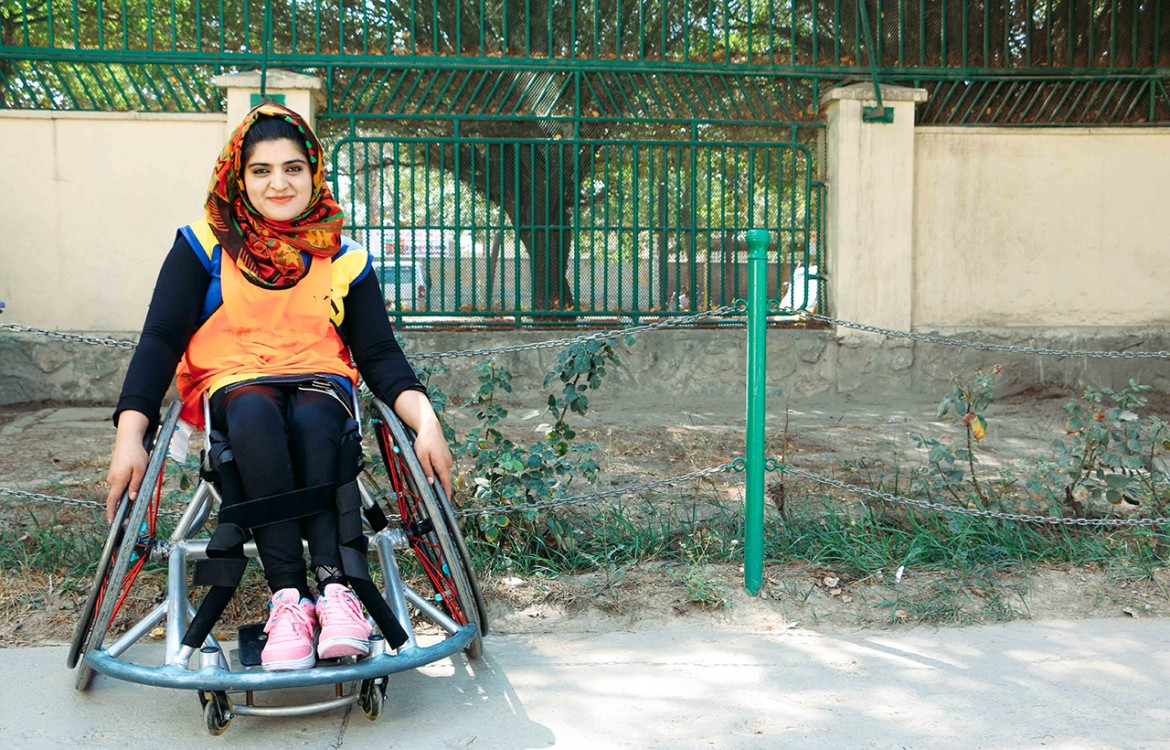 Saleha Nekkhaw, 25Saleha is a defender on the basketball court. But that’s not her only area of expertise. She is also on her way to becoming a lawyer. Saleha recently started her last semester of the law course at Herat University.CC BY-NC-ND / ICRC / Roya Musawi
Saleha Nekkhaw, 25Saleha is a defender on the basketball court. But that’s not her only area of expertise. She is also on her way to becoming a lawyer. Saleha recently started her last semester of the law course at Herat University.CC BY-NC-ND / ICRC / Roya Musawi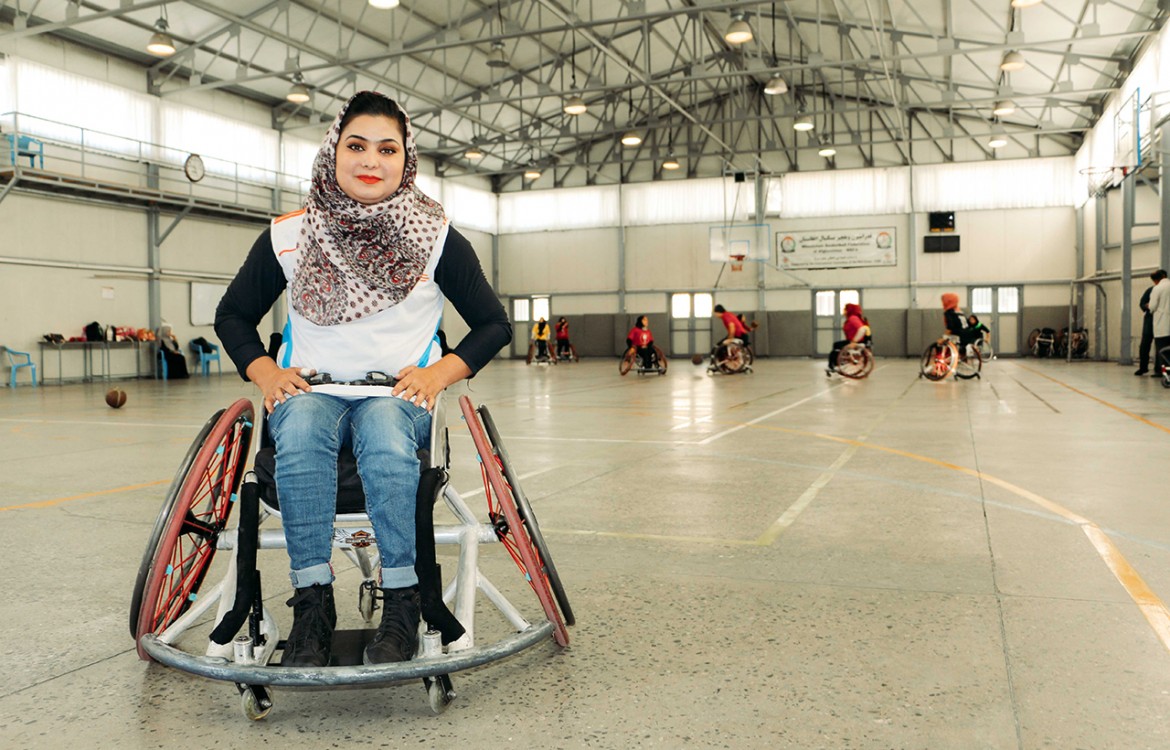 Kamila Rahimi, 24Sports can be empowering, and Kamila hits the bull’s eye when she says, “Basketball makes me forget my disability. It makes me feel like an equal… it makes me feel like a strong woman.”CC BY-NC-ND / ICRC / Roya Musawi
Kamila Rahimi, 24Sports can be empowering, and Kamila hits the bull’s eye when she says, “Basketball makes me forget my disability. It makes me feel like an equal… it makes me feel like a strong woman.”CC BY-NC-ND / ICRC / Roya Musawi Shabana Akbari, 19“War and strife have affected everything in Afghanistan. The society is very sensitive back home and it is a big achievement for us to represent our country at the international level.” Shabana hopes to bring home the championship title for Afghanistan.CC BY-NC-ND / ICRC / Roya Musawi
Shabana Akbari, 19“War and strife have affected everything in Afghanistan. The society is very sensitive back home and it is a big achievement for us to represent our country at the international level.” Shabana hopes to bring home the championship title for Afghanistan.CC BY-NC-ND / ICRC / Roya Musawi Mulkara Rahimi, 30“Life in Afghanistan can be very difficult for those who’re disabled. I remember facing a lot of criticism and taunts when I was younger.” Mulkara is a physiotherapist and works with the ICRC. She now helps others who faced the same problems that she once did.CC BY-NC-ND / ICRC / Roya Musawi
Mulkara Rahimi, 30“Life in Afghanistan can be very difficult for those who’re disabled. I remember facing a lot of criticism and taunts when I was younger.” Mulkara is a physiotherapist and works with the ICRC. She now helps others who faced the same problems that she once did.CC BY-NC-ND / ICRC / Roya Musawi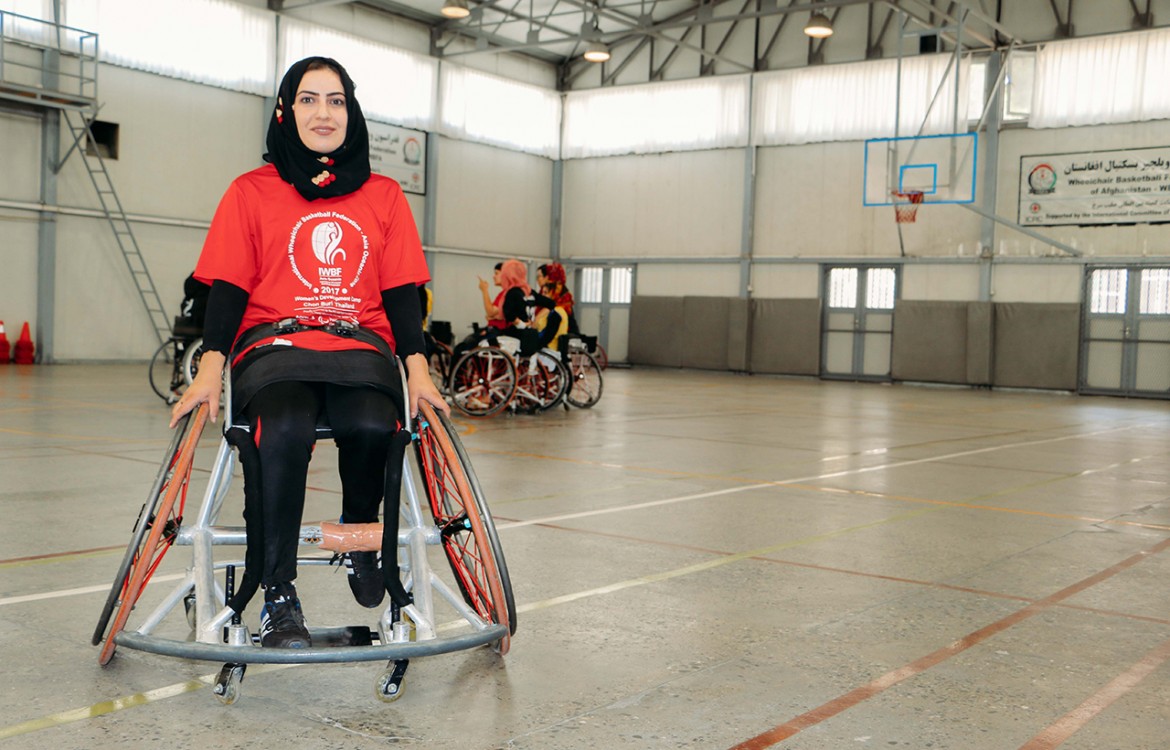 Frishta Museri, 23Frishta is from Mazar-e-Sharif in the northern part of Afghanistan. This will be her fourth time competing abroad. She is currently studying to become a physiotherapist, like her teammate Mulkara.CC BY-NC-ND / ICRC / Roya Musawi
Frishta Museri, 23Frishta is from Mazar-e-Sharif in the northern part of Afghanistan. This will be her fourth time competing abroad. She is currently studying to become a physiotherapist, like her teammate Mulkara.CC BY-NC-ND / ICRC / Roya Musawi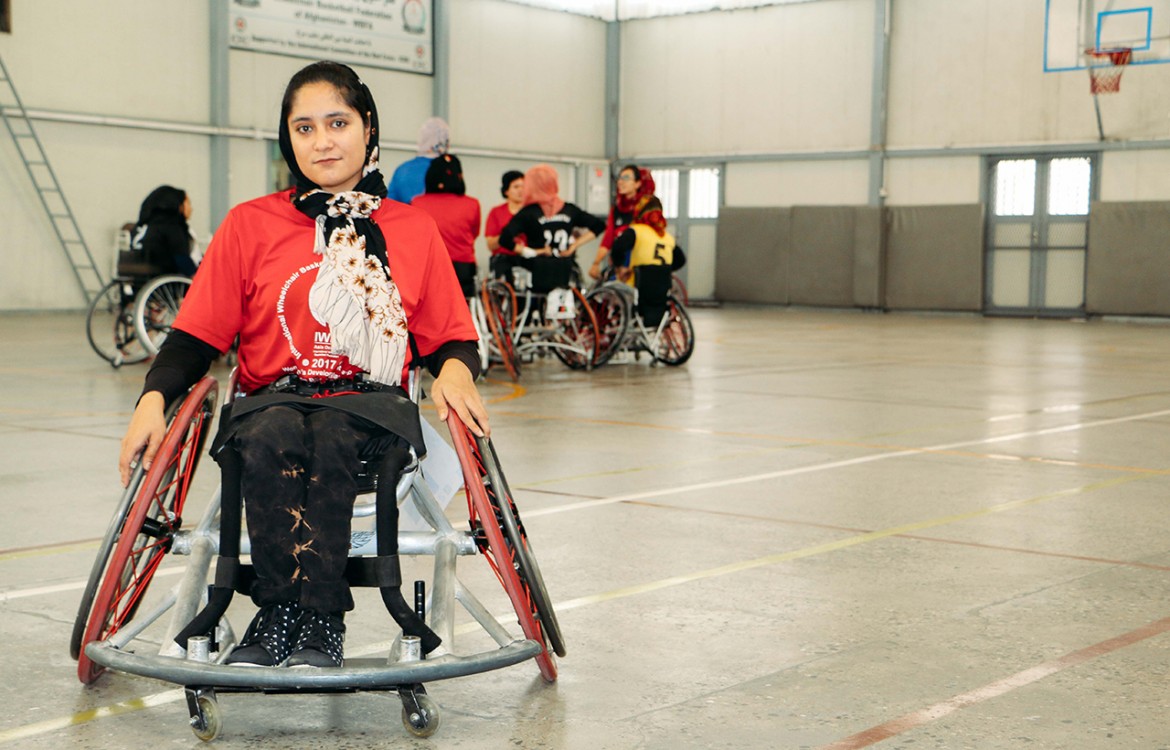 Jamila Ahmadi, 19Jamila has polio but that hasn’t stopped her from training hard for the tournament. A high schooler, this teenager loves to embroider during her free time.CC BY-NC-ND / ICRC / Roya Musawi
Jamila Ahmadi, 19Jamila has polio but that hasn’t stopped her from training hard for the tournament. A high schooler, this teenager loves to embroider during her free time.CC BY-NC-ND / ICRC / Roya Musawi
Sports is a great equalizer. It not only empowers, but also equips the sportspeople to become agents of change. Through sports, persons with disabilities acquire vital social skills, gain independence and achieve the status of true heroes. And resonating all of these qualities are the energetic members of the Afghanistan women's wheelchair basketball squad.
In March, these feisty ladies won the qualifier held in Thailand, thus ensuring their team's spot in the Asian Para Games 2018 that are set to take off in Jakarta, Indonesia. For some of these players, it will be their first time travelling overseas and representing Afghanistan.
Each of them dreams of winning the championship. Having struggled to reach where they are today, these basketballers want the world to see this facet of Afghanistan too – where sports triumphs over gloom and conflict.
The International Committee of the Red Cross (ICRC) introduced wheelchair basketball in Afghanistan close to eight years ago. Over the years, close to 400 sportspeople got associated with the game and now play represent various teams across the country. "They developed tremendous self-confidence after they started playing basketball," vouches Jess Markt, the ICRC's disability sport and inclusion adviser.

